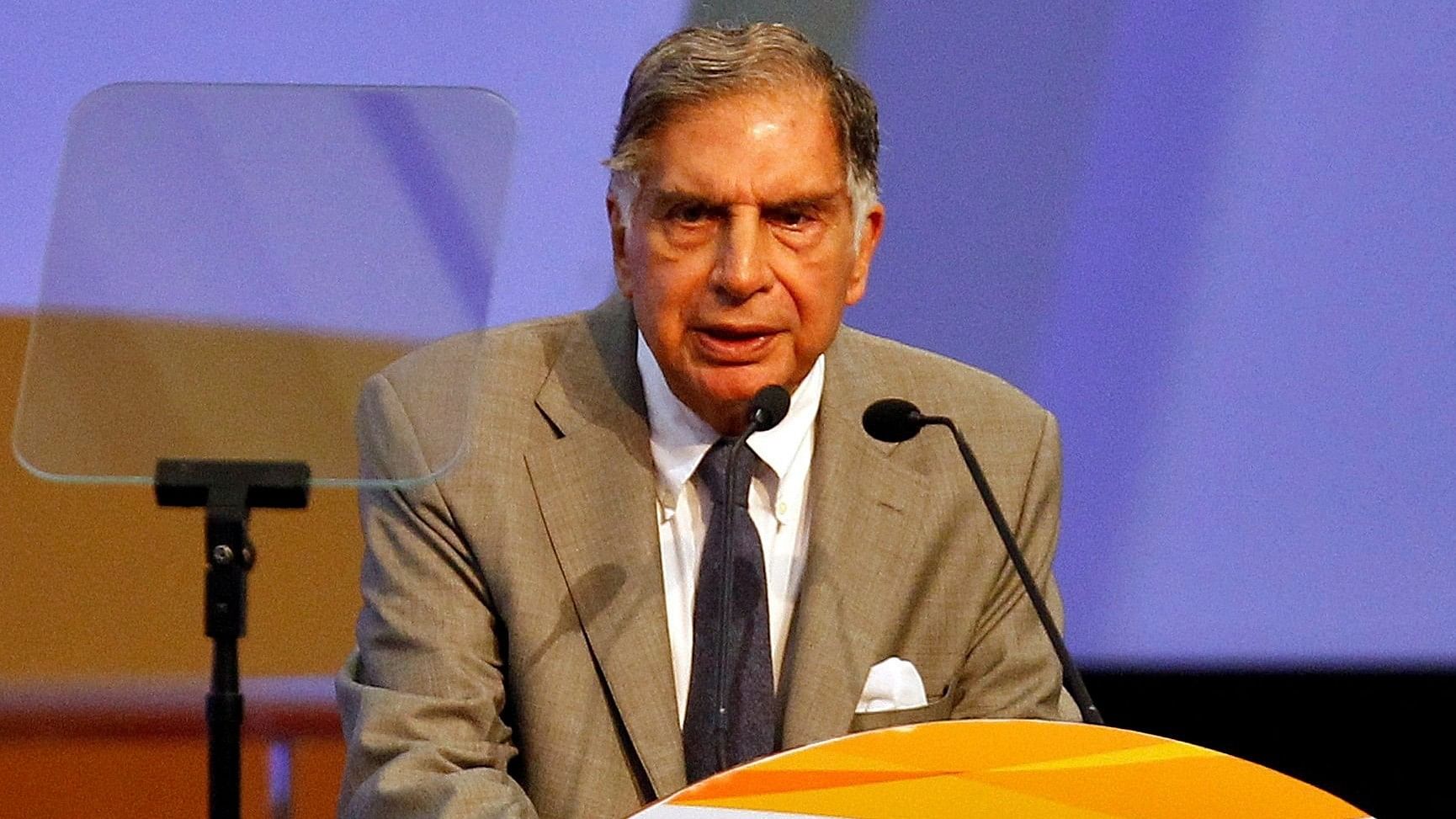
File photo of Ratan Tata.
Credit: Reuters Photo
The passing of Padma Vibhushan Ratan Naval Tata in Mumbai, the headquarters of the Tata conglomerate that he led for over two decades, marks the end of an era for both the Tata group and the wider world of Indian business.
Ratan Tata’s tenure as head of the group coincided with the era of liberalisation that dramatically changed India’s business landscape, driving him to bold bets, deep changes, and new directions. None of this was easy, as he was tasked with accelerating a group that had been part of the “Hindu rate of growth” in India’s economic story. He urged it to move faster and aim higher.
This involved significant changes, starting with Ratan Tata consolidating control from the Tata old guard and then moving the group towards rethinking its scope and size. Building the world’s cheapest car (the Nano, or the “people’s car”), taking the software giant Tata Consultancy Services (TCS) public, and acquiring Tetley and Jaguar Land Rover are just a few highlights from a career that shook up the group while keeping it steady.
Ratan Tata’s leadership journey was challenging and seldom told in all its detail, as he preferred working in the quiet and remained an introvert all his life, quite the reverse of the charm and magnetism of his predecessor, the redoubtable Jehangir Ratanji Dadabhoy Tata or simply, JRD.
Lacking any of JRD’s charisma, and, in fact, distinctly uncharismatic as he was, Ratan Tata still stood out as a gentlemanly leader who kept a sense of grace and an understated manner in a business world that has become too loud and flamboyant. In an age when business leaders compulsively speak on social media, proclaim their flashy tastes, or tend to demonstrate reach and power, Ratan Tata was different—always away from the limelight and reserved, he lived a life of 86 years almost behind closed doors.
The late Russi M Lala, the best-known chronicler of the Tata group, once said in a conversation with this writer: “Ratan Tata has a lot to be proud of” and that “JRD would be proud of Ratan”. Lala added: “In some sense, it might... be possible to argue that what Ratan has achieved—without charisma, the personality, or the magnetism of JRD — is higher than JRD’s achievement. Though we must not forget that JRD was bound by the license Raj while Ratan was relatively free to perform under the liberalised era.”
This assessment from an insider says a lot about the unique achievements of Ratan Tata.
These words came around the time Ratan Tata had announced his retirement and Cyrus Mistry was named chairman-designate, a succession story that eventually went horribly wrong for the group, for Cyrus Mistry, and personally for Ratan Tata. Yet Ratan Tata emerged from it and kept the group steady as he installed N Chandrasekaran, then chairman and managing director of TCS, as the chairman of the group holding company Tata Sons in 2017 and moved himself to the position of a Chairman Emeritus.
In a statement, Chandrasekaran paid his tributes: “For the Tata group, Mr Ratan Tata was more than a chairperson. To me, he was a mentor, guide, and friend. He inspired by example. With an unwavering commitment to excellence, integrity, and innovation, the Tata group under his stewardship expanded its global footprint while always remaining true to its moral compass.”
His statement is significant in the way it underlines that a growth story in the India of today can be scripted while keeping the moral compass intact.
Even if we allow for some scepticism, given the way Cyrus Mistry was ousted or the saga of the Radia tapes that brought unsavoury attention to the group, there is no denying that the Tata group stands out for living and growing with values, for working with integrity, and above all for having its heart in the right place. That brings heft to any valuations that financial pundits can add up to give the group’s net worth.
In the case of the Tata group, the intangibles may well exceed the sizeable tangibles. To keep this story intact for such a long time is in itself an achievement, notably in an environment marked by issues of governance.
Many years ago, this writer sat down at Bombay House to record an in-camera interview with Tata, where he reflected on the challenges facing the group.
“The challenges facing us,” he said then, “are basically the challenges of a much more open and more competitive market, which will cause us to be more competitive. The challenges are to continue to grow while upholding the values and traditions that we’ve had, and to enhance shareholder value and be fair to all the stakeholders of the company.”
Somewhere during the interview, Ratan Tata asked to be served water. A liveried staffer arrived. As Tata turned to him, he said, ‘Thank you’, and then continued with the interview.
It can be said here was a graceful businessman and a growth driver with a gentlemanly manner.
(The writer is a journalist and faculty member at SPJIMR)
(Through The Billion Press)